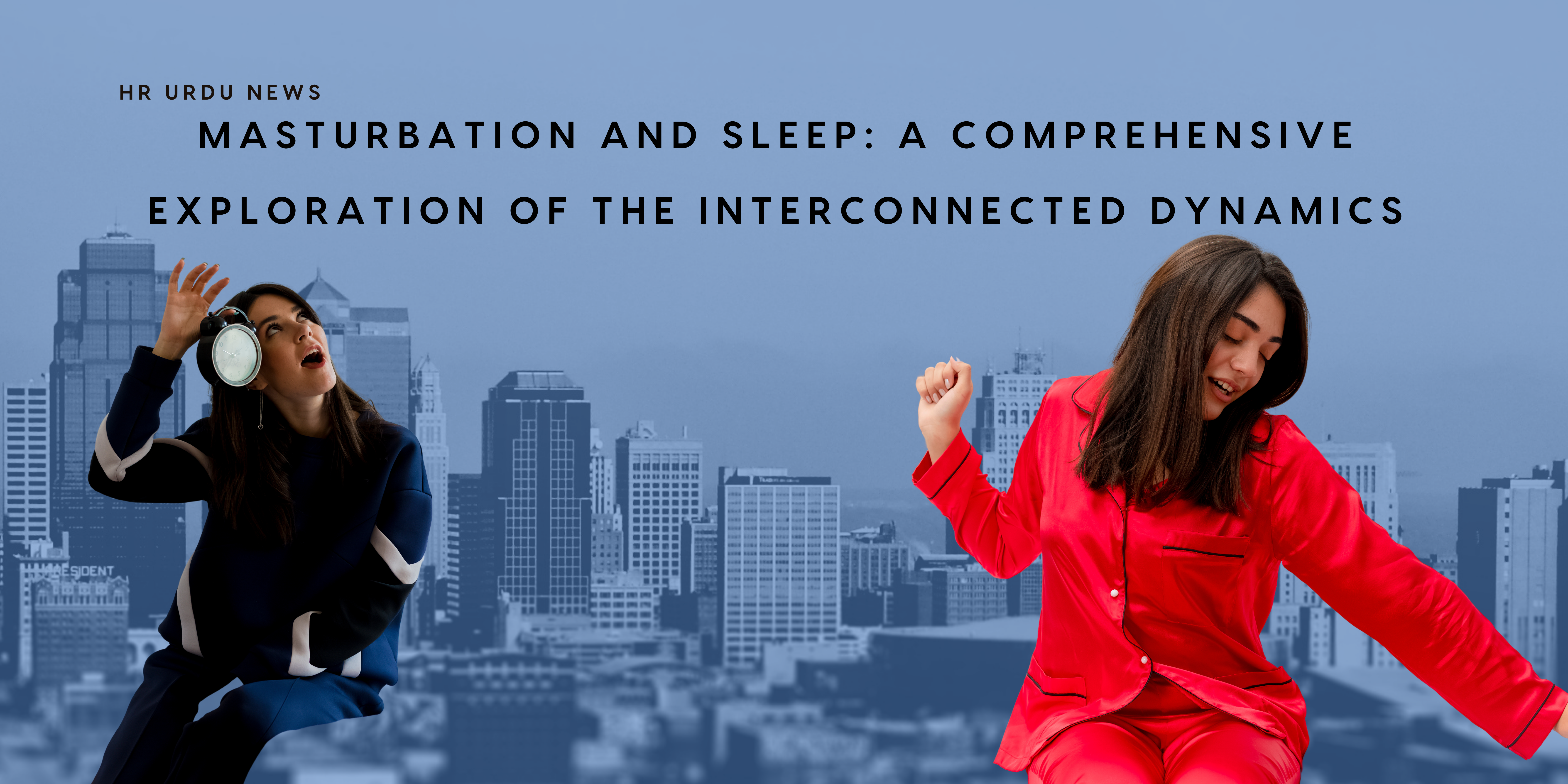Introduction:
Masturbation, a natural and integral facet of human sexuality, has long intrigued individuals and researchers alike. Beyond its role as a pleasurable and stress-relieving activity, there is a growing interest in understanding its potential influence on an aspect of our lives that is critical for overall well-being: sleep. This exploration delves into the intricate relationship between masturbation and sleep, unraveling the complex interplay of biological, psychological, and behavioral factors. Moreover, we examine the potential consequences of abstaining from this activity and its broader implications for sleep patterns.
Sleep Quality and Sexual Activity:
To comprehend the connection between sexual activity, including masturbation, and sleep quality, it’s essential to delve into the neurochemical responses triggered by such activities. The release of endorphins, often referred to as the body’s natural opioids, during sexual activity contributes significantly to a sense of relaxation and overall well-being. Beyond the immediate pleasure, these neurotransmitters create an environment conducive to a more restful night’s sleep.
Further complicating this neurochemical symphony is oxytocin, commonly known as the “love hormone.” Released during sexual activity, oxytocin fosters feelings of calmness, contentment, and emotional bonding. These emotional states, coupled with the physiological responses initiated by sexual activity, contribute to an improved sense of relaxation and, consequently, positively influence sleep quality.
Nocturnal Habits and Sleep Patterns:
The individualized nature of sleep patterns and habits introduces significant variability in how individuals respond to sexual activity, particularly before bedtime. While some individuals report that engaging in masturbation facilitates relaxation and promotes easier sleep initiation, others may experience heightened arousal or find it challenging to wind down post-sexual activity.
Understanding one’s body and its unique responses becomes paramount in determining how masturbation may impact sleep. Attuning oneself to the emotional and physical states after engaging in sexual activity empowers individuals to make informed decisions about their nocturnal habits, allowing for the optimization of sleep quality based on individual needs and preferences.
Sleep and Reproductive Health:
Considering the broader context of reproductive health is crucial when exploring the connection between masturbation and sleep. For couples actively trying to conceive, healthcare professionals may recommend temporary abstinence from sexual activity, including masturbation, to optimize the chances of successful conception. However, recognizing the individuality of circumstances and goals is crucial, necessitating personalized advice and guidance from healthcare providers.
Understanding that this recommendation is not universally applicable, and its impact on sleep patterns during such periods of abstinence can vary, adds another layer of complexity to the intricate relationship between sexual activity and sleep.
Sleep Hygiene and Sexual Habits:
Ensuring a restful night’s sleep involves practicing good sleep hygiene, which extends to the consideration of sexual habits, including masturbation. Comprehensive sleep hygiene includes maintaining a consistent sleep schedule, cultivating a comfortable sleep environment, and incorporating relaxation techniques into pre-sleep routines. Acknowledging the impact of sexual habits on sleep quality becomes an integral aspect of this overall sleep hygiene.
For individuals who find that masturbation negatively affects their sleep, making adjustments to the timing or frequency of this activity is a consideration. The process of experimentation, combined with an understanding of one’s unique sleep needs, allows individuals to identify strategies that optimize sleep quality within the framework of their personal preferences.
Impact of Sexual Abstinence on Sleep:
While empirical research specifically addressing the effects of sexual abstinence on sleep remains limited, anecdotal evidence provides insights into potential alterations in sleep patterns. Some individuals report increased sexual tension and difficulty falling asleep during periods of abstinence, shedding light on the intricate relationship between sexual activity and sleep initiation.
Conversely, others may report heightened focus and improved sleep quality during periods of abstaining from sexual activity. These diverse responses underscore the highly individualized nature of the connection between sexual abstinence and sleep, necessitating a nuanced understanding of these dynamics.
Exploring the impact of sexual abstinence on sleep quality opens avenues for research into the psychological and physiological mechanisms that may be at play. It also highlights the need for personalized approaches in understanding how periods of sexual abstinence may influence an individual’s sleep patterns.
Sleep Benefits of Abstaining from Masturbation:
Delving into the potential benefits of abstaining from masturbation unveils a spectrum of responses and outcomes. Some individuals report heightened energy levels, increased focus, and an overall sense of improved well-being during periods of abstinence. This may be attributed to the redirection of sexual energy towards other activities or the perceived sense of self-control gained from abstaining.
It is crucial to emphasize the complex and individualized nature of these effects. What proves beneficial for one person may not have the same impact on another. Recognizing and respecting these individual differences become fundamental in navigating the intricate relationship between masturbation, abstinence, and sleep.
Understanding the potential benefits of abstaining from masturbation also requires a nuanced exploration of the psychological and physiological changes that may accompany such periods of abstinence. The impact on overall well-being and how these changes intersect with an individual’s sleep patterns present intriguing avenues for further research.
Sleep Hygiene and Sexual Habits:
Ensuring a restful night’s sleep involves practicing good sleep hygiene, which extends to the consideration of sexual habits, including masturbation. Comprehensive sleep hygiene includes maintaining a consistent sleep schedule, cultivating a comfortable sleep environment, and incorporating relaxation techniques into pre-sleep routines. Acknowledging the impact of sexual habits on sleep quality becomes an integral aspect of this overall sleep hygiene.
For individuals who find that masturbation negatively affects their sleep, making adjustments to the timing or frequency of this activity is a consideration. The process of experimentation, combined with an understanding of one’s unique sleep needs, allows individuals to identify strategies that optimize sleep quality within the framework of their personal preferences.
Impact of Sexual Abstinence on Sleep:
While empirical research specifically addressing the effects of sexual abstinence on sleep remains limited, anecdotal evidence provides insights into potential alterations in sleep patterns. Some individuals report increased sexual tension and difficulty falling asleep during periods of abstinence, shedding light on the intricate relationship between sexual activity and sleep initiation.
Conversely, others may report heightened focus and improved sleep quality during periods of abstaining from sexual activity. These diverse responses underscore the highly individualized nature of the connection between sexual abstinence and sleep, necessitating a nuanced understanding of these dynamics.
Exploring the impact of sexual abstinence on sleep quality opens avenues for research into the psychological and physiological mechanisms that may be at play. It also highlights the need for personalized approaches in understanding how periods of sexual abstinence may influence an individual’s sleep patterns.
Sleep Benefits of Abstaining from Masturbation:
Delving into the potential benefits of abstaining from masturbation unveils a spectrum of responses and outcomes. Some individuals report heightened energy levels, increased focus, and an overall sense of improved well-being during periods of abstinence. This may be attributed to the redirection of sexual energy towards other activities or the perceived sense of self-control gained from abstaining.
It is crucial to emphasize the complex and individualized nature of these effects. What proves beneficial for one person may not have the same impact on another. Recognizing and respecting these individual differences become fundamental in navigating the intricate relationship between masturbation, abstinence, and sleep.
Understanding the potential benefits of abstaining from masturbation also requires a nuanced exploration of the psychological and physiological changes that may accompany such periods of abstinence. The impact on overall well-being and how these changes intersect with an individual’s sleep patterns present intriguing avenues for further research.
Conclusion:
In conclusion, the intricate relationship between masturbation and sleep spans a vast terrain of biological, psychological, and sociocultural factors. While sexual activity, including masturbation, is shown to enhance relaxation and improve sleep quality for many individuals, the experiences are far from universal. Understanding one’s body, emotional responses, and unique sleep needs becomes paramount to optimizing sleep quality in the context of sexual activity.
For individuals grappling with concerns about the potential impact of masturbation on sleep, a comprehensive process of experimentation and consultation with healthcare professionals is recommended. Prioritizing both sleep and overall well-being is essential for leading a healthy and balanced life. In navigating this intricate relationship, individuals can uncover personalized approaches that contribute to a good night’s rest and overall satisfaction, acknowledging and respecting the unique interplay between sexual activity and sleep.
The complexity of this topic calls for ongoing research to unravel the underlying mechanisms and individual variations. It prompts further exploration into how our intimate experiences intersect with our physiological need for rest, opening up new avenues for understanding the intricate dance between sexual activity and the sleep that rejuvenates us. As we continue to unravel these mysteries, we gain not only a deeper understanding of our bodies but also insights that can contribute to overall well-being and a healthier approach to intimate aspects of our lives.
Disclaimer:
The information provided in the article “Masturbation and Sleep: A Holistic Exploration of Interconnected Dynamics” is intended for general informational purposes only. The article explores the complex relationship between masturbation and sleep, touching upon various biological, psychological, and sociocultural factors. However, individual experiences may vary, and the information presented should not be considered as personalized medical advice.
Readers are encouraged to consult with their healthcare professionals for personalized guidance based on their specific health conditions and needs. The author and the platform do not assume any responsibility for any consequences arising directly or indirectly from the use of the information provided in the article.
Furthermore, the article may touch upon sensitive topics related to sexuality. Readers are advised to exercise discretion and consider their comfort levels while engaging with the content. The views and opinions expressed in the article are those of the author and do not necessarily reflect the official policy or position of the platform.
The article does not endorse or promote any specific products, treatments, or approaches.
In summary, the article is meant to provide a broad understanding of the interconnected dynamics between masturbation and sleep, but readers are strongly advised to consult with healthcare professionals for personalized advice and treatment.

